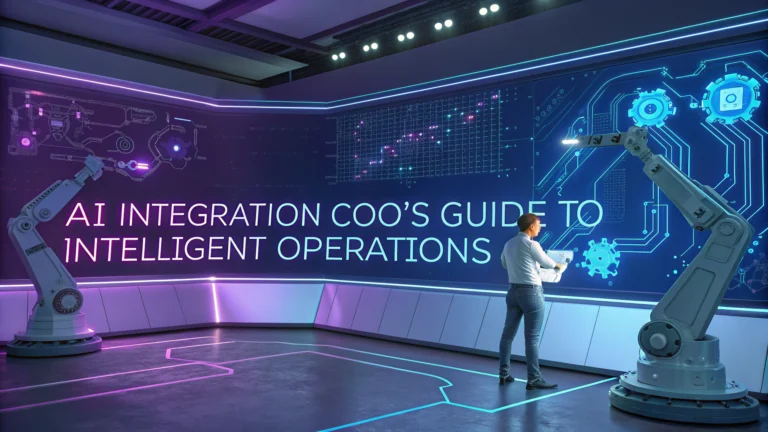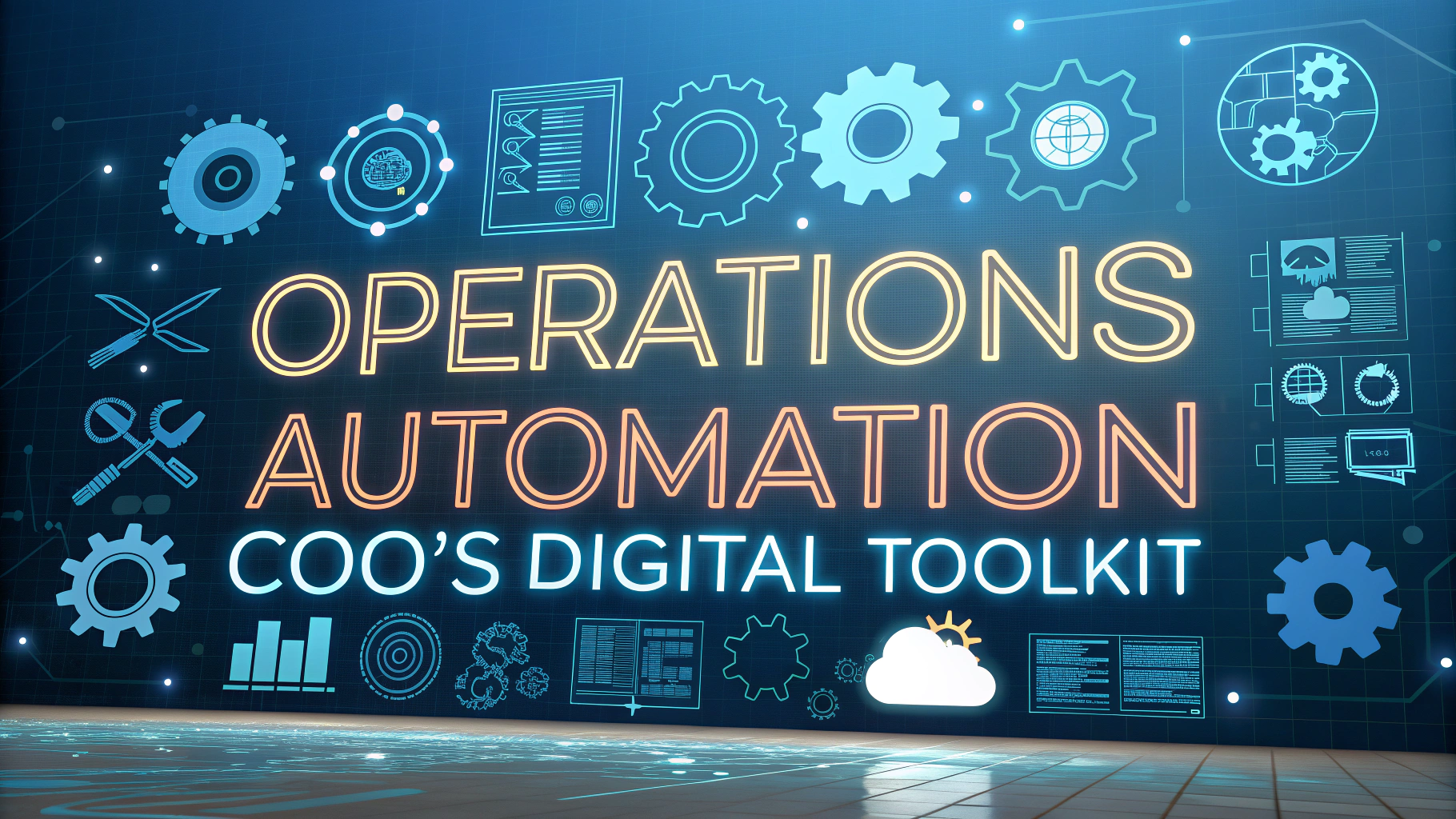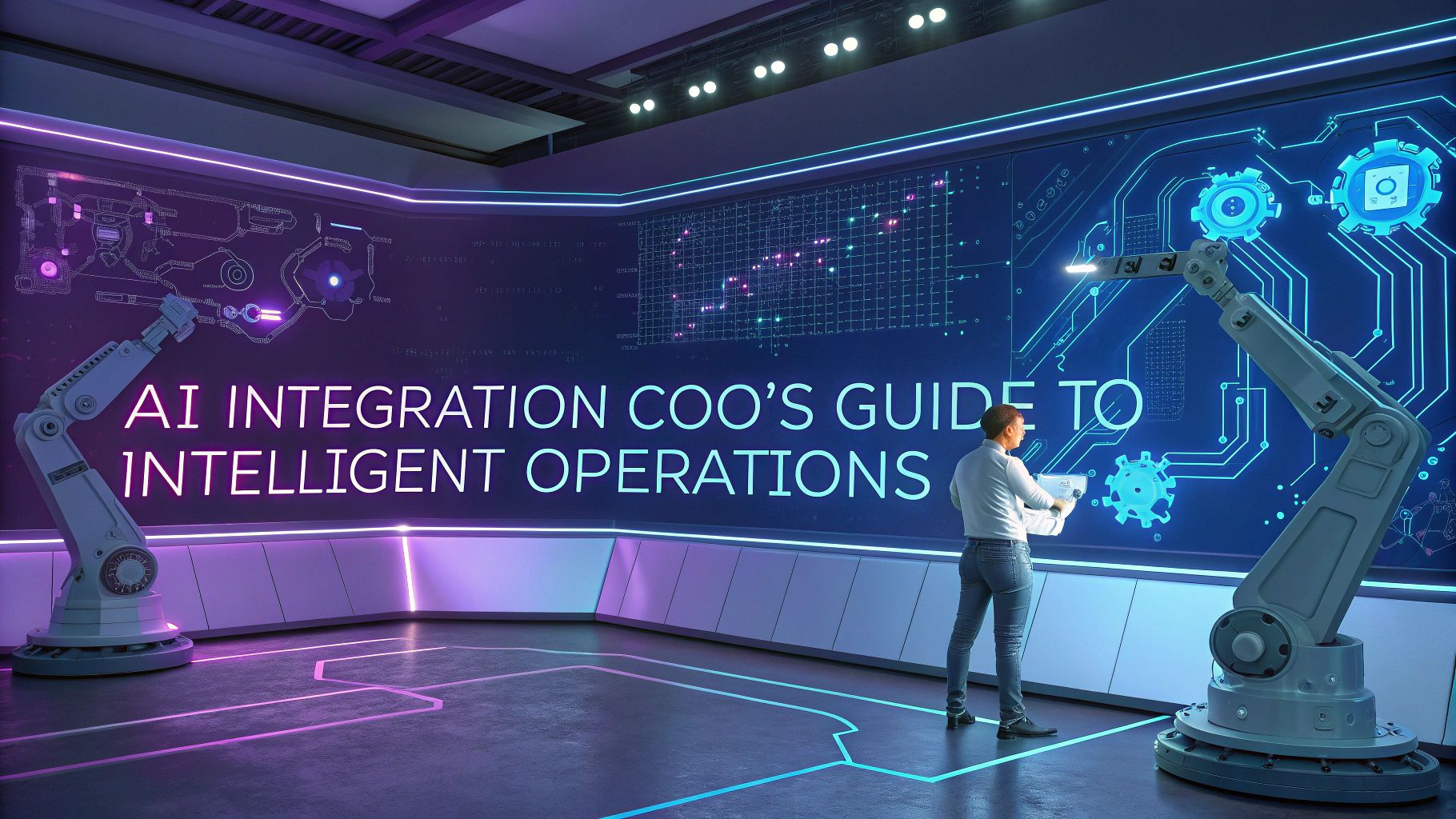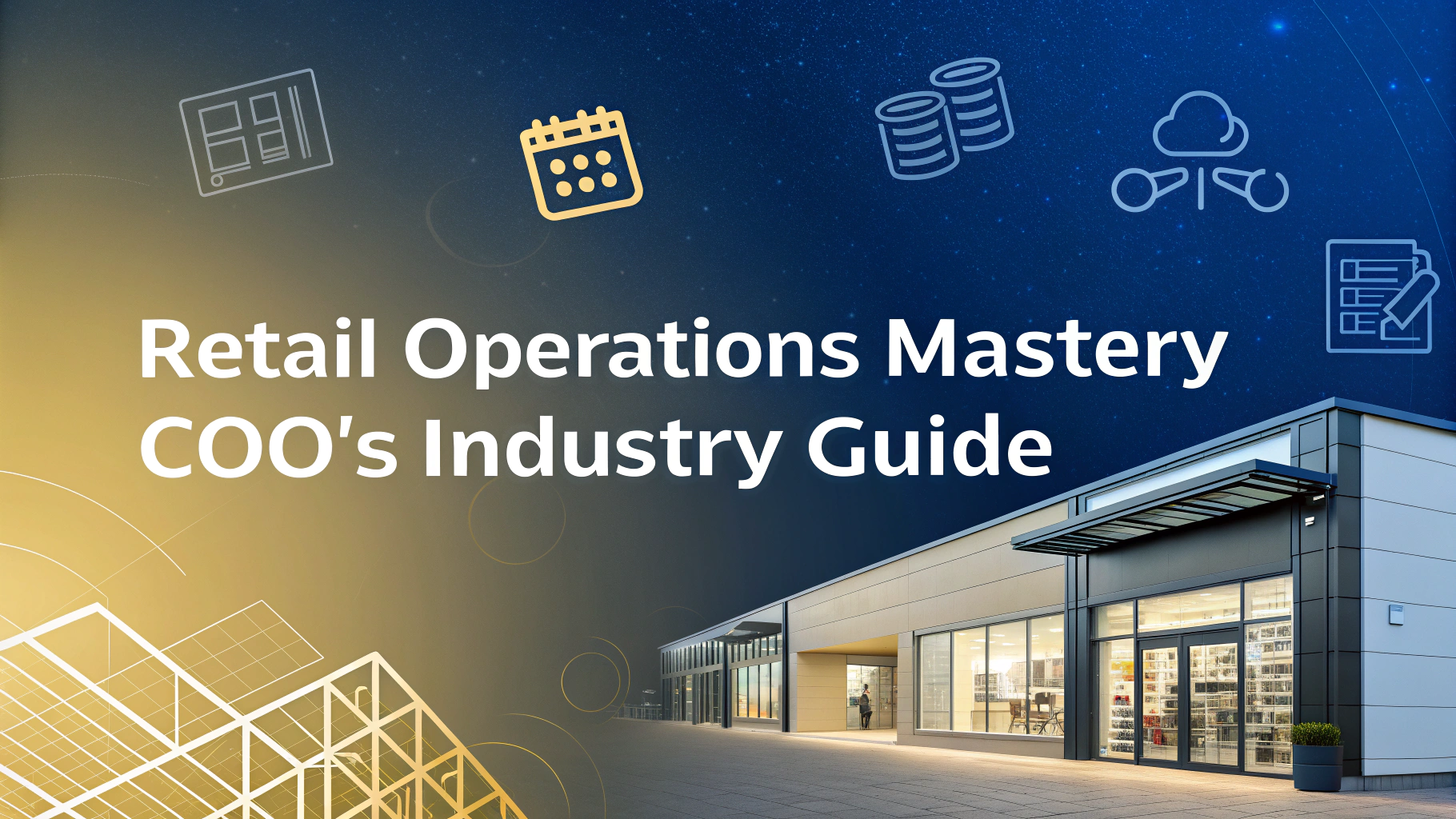Artificial Intelligence is reshaping how Chief Operating Officers manage and optimize business operations across industries.
Modern COOs need a strategic approach to AI implementation that balances innovation with practical operational needs.
This guide outlines key steps for COOs to successfully integrate AI into their operations while maximizing ROI and minimizing disruption.
Starting Your AI Integration Journey
A successful AI implementation begins with identifying specific operational pain points that AI can address.
- Process automation opportunities
- Data analysis bottlenecks
- Customer service inefficiencies
- Supply chain optimization needs
- Quality control challenges
Assessing AI Readiness
Before implementing AI solutions, evaluate your organization’s technical infrastructure and data maturity.
| Component | Requirements |
|---|---|
| Data Quality | Clean, structured data sets |
| Infrastructure | Cloud computing capabilities |
| Talent | Technical expertise and training |
| Integration | API compatibility |
Selecting the Right AI Solutions
Choose AI tools that align with your operational goals and existing systems.
- Predictive Analytics: Forecast demand and optimize inventory
- Machine Learning: Improve process efficiency and quality control
- Natural Language Processing: Enhance customer service and documentation
- Computer Vision: Automate visual inspections and monitoring
Implementation Strategy
Follow a phased approach to AI integration:
- Pilot programs in controlled environments
- Data collection and validation
- Staff training and change management
- Gradual scaling across departments
- Continuous monitoring and optimization
Measuring Success
Track these key performance indicators (KPIs):
- Cost reduction percentages
- Process efficiency improvements
- Error rate reduction
- Customer satisfaction scores
- Return on AI investment
Common Implementation Challenges
Be prepared to address these typical obstacles:
- Data quality and accessibility issues
- Employee resistance to change
- Integration with legacy systems
- Security and compliance concerns
Next Steps for Your AI Journey
Start with a thorough assessment of your current operations and create a detailed implementation roadmap.
Contact leading AI solution providers like IBM (IBM Consulting), Microsoft (Azure AI), or Google (Google Cloud AI) for professional guidance.
Join industry groups like the AI Leadership Institute or the International Association of AI to stay updated on best practices and networking opportunities.
Building an AI-Ready Team
Develop internal capabilities and expertise to support your AI initiatives.
- Identify key roles and responsibilities
- Create dedicated AI teams or committees
- Invest in employee training programs
- Partner with AI experts and consultants
Risk Management and Governance
Establish frameworks to manage AI-related risks and ensure responsible implementation.
- Data privacy and security protocols
- Ethical AI guidelines
- Compliance monitoring systems
- Regular audits and assessments
Scaling AI Across Operations
Department Integration
Systematically expand AI solutions across different operational areas:
- Manufacturing and production
- Supply chain management
- Quality assurance
- Customer service operations
- Administrative processes
Cross-Functional Collaboration
Foster collaboration between departments to maximize AI impact:
- Regular stakeholder meetings
- Shared resource allocation
- Unified data strategies
- Integrated workflow systems
Leading the AI-Powered Future
As AI technology continues to evolve, COOs must position their organizations for sustained success through:
- Continuous innovation and adaptation
- Regular assessment of new AI capabilities
- Investment in emerging technologies
- Building a culture of digital transformation
Remember that successful AI integration is a journey rather than a destination. Stay committed to long-term transformation while maintaining focus on immediate operational improvements.
FAQs
- What are the key benefits of AI integration for COO operations?
AI integration enhances operational efficiency through process automation, predictive analytics for better decision-making, improved resource allocation, real-time monitoring capabilities, and reduced operational costs. - How should COOs approach the initial AI implementation strategy?
Start with a thorough assessment of current operations, identify high-impact areas for AI implementation, establish clear KPIs, conduct pilot programs, and develop a phased rollout plan while ensuring alignment with overall business objectives. - What are the common challenges COOs face during AI integration?
Key challenges include data quality issues, resistance to change from employees, integration with legacy systems, skill gaps in the workforce, data security concerns, and ROI justification. - How can COOs ensure successful change management during AI adoption?
Implement comprehensive training programs, maintain clear communication about AI initiatives, involve key stakeholders early, create feedback channels, and demonstrate quick wins to build organizational buy-in. - What AI technologies should COOs prioritize for operational excellence?
Focus on machine learning for process optimization, natural language processing for documentation and communication, predictive analytics for forecasting, and robotic process automation for routine tasks. - How do COOs measure the success of AI integration initiatives?
Track metrics including operational cost reduction, process cycle time improvements, error rate reduction, resource utilization rates, customer satisfaction scores, and ROI on AI investments. - What security considerations should COOs address in AI implementation?
Ensure data privacy compliance, implement robust cybersecurity measures, establish AI governance frameworks, conduct regular security audits, and maintain ethical AI usage guidelines. - How can COOs build the right team for AI operations?
Combine technical expertise (data scientists, AI engineers) with domain experts, upskill existing employees, create cross-functional teams, and establish partnerships with AI solution providers. - What role does data infrastructure play in AI operations?
Data infrastructure is crucial for AI success, requiring proper data storage solutions, quality management systems, integration capabilities, scalable architecture, and efficient data governance protocols. - How should COOs balance automation with human workforce management?
Identify tasks best suited for automation versus human judgment, develop reskilling programs, create new roles that leverage AI capabilities, and maintain focus on human-AI collaboration rather than replacement.








